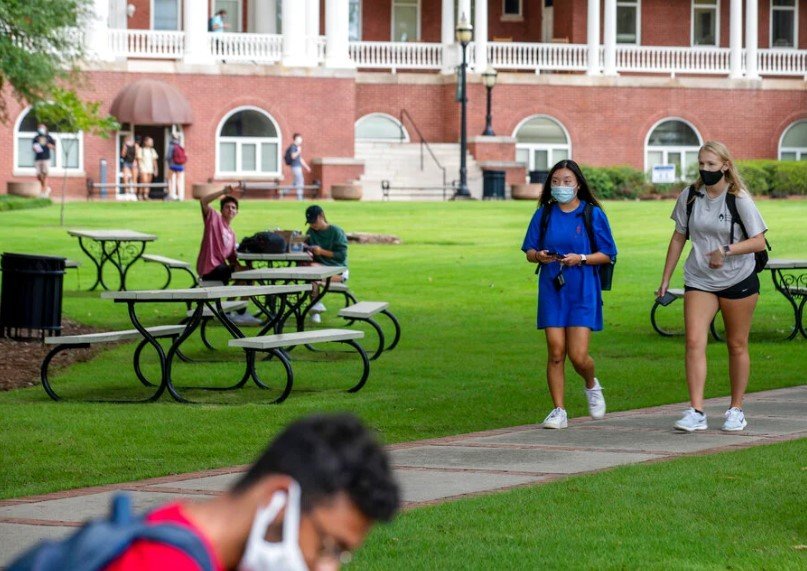While out-of-state and international students face modest hikes, in-state families get relief for seventh time in a decade
ATLANTA – In a move aimed at reinforcing its commitment to affordability and access, the University System of Georgia (USG) Board of Regents voted Tuesday to freeze tuition for in-state students at all 26 of its public colleges and universities for the upcoming academic year — marking the seventh tuition freeze in the past 10 years.
The decision, made during the board’s meeting at Georgia Southern University’s campus in Statesboro, was hailed by system officials as part of a long-term strategy to keep higher education within financial reach for Georgia families, despite inflationary pressures and increasing enrollment.
“This is about putting Georgia students and their families first,” said USG Chancellor Sonny Perdue, the former governor and a longtime advocate for conservative fiscal stewardship in education. “As more students than ever enroll on our campuses, we continue to prioritize reducing financial barriers and offering excellent value.”
Holding the Line on Tuition, With Some Exceptions
While in-state undergraduate tuition remains flat, out-of-state students will see a 2% increase, and international students will face a 3% rise starting in the fall semester. This incremental adjustment, officials say, is designed to balance growing operational costs without burdening Georgia residents.

“USG and the Board of Regents remain focused on keeping college affordable for Georgia families,” said Tracey Cook, the system’s Chief Fiscal Officer. She noted that since 2016, average tuition increases across the system have totaled less than 1% annually.
Georgia’s National Ranking for Affordability
According to data from the College Board, Georgia ranks as the third-lowest state in average undergraduate tuition and required fees among the 16 states in the Southern Regional Education Board (SREB). Nationally, USG holds the sixth-lowest position in terms of tuition and fee costs at public institutions.
This strategic positioning not only benefits students but also serves as a talent-retention mechanism for Georgia’s long-term workforce development.
“Affordability is part of our talent strategy,” Perdue noted. “Keeping our best and brightest in Georgia depends on ensuring they’re not priced out of opportunity.”
Fee Adjustments for Some Institutions
Although tuition remains stable for most, the regents approved modest changes to mandatory student fees at eight of the system’s institutions. Six universities will see fee increases ranging from $5 to $21 per semester, while two institutions will reduce their fees.
While not a system-wide trend, these fee adjustments reflect localized needs, such as improvements to campus facilities, student health services, and technology infrastructure.
“These aren’t arbitrary increases,” said Cook. “They’re based on careful evaluation of where the additional support will make a direct, positive impact on the student experience.”
Institutional Consolidation Approved
In other board action, the regents approved a plan to consolidate Georgia Southern University and East Georgia State College — part of an ongoing effort to streamline administrative functions and enhance student services through institutional integration.
While the finer details of the consolidation remain under review, USG has pursued similar mergers in recent years as a means of reducing redundancy and bolstering academic support.
“This isn’t about cutting corners,” said Perdue. “It’s about making sure every dollar goes further — for both students and the institutions that serve them.”
Balancing Inflation, Equity, and Excellence
Last year, the regents approved a 2.5% tuition increase for in-state undergraduates, citing inflation as the primary factor. With inflationary trends still present in higher education — from energy and construction costs to faculty compensation — the 2025 freeze may come as a surprise to some.
But officials say it’s a calculated decision rooted in long-term system health and a desire to protect access.
“We know affordability is the front door to opportunity,” Perdue emphasized. “And we’re committed to keeping that door wide open.”
USG’s approach reflects a growing national trend where states attempt to balance inflation and institutional funding with the need to curb student debt and maintain access for underserved communities.
Enrollment Trends Signal Strategic Momentum
Georgia’s public university system has seen strong enrollment rebounds post-pandemic, with particular growth in sectors like STEM, healthcare, and skilled trades. Keeping tuition predictable may be key to sustaining that momentum — especially for first-generation students and working-class families.
As Perdue noted: “Every tuition freeze isn’t just a policy decision. It’s a signal — to parents, to lawmakers, and most importantly, to students — that Georgia believes in your future.”
Fast Facts
| Category | Details |
|---|---|
| In-State Tuition | Frozen for 2025–2026 academic year |
| Out-of-State Tuition | 2% increase |
| International Student Tuition | 3% increase |
| Student Fee Changes | Adjustments at 8 institutions |
| Consolidation Plan | Georgia Southern + East Georgia State College |
| Ranking (SREB) | 3rd lowest in undergraduate tuition |
| Ranking (National) | 6th lowest among public peers |
